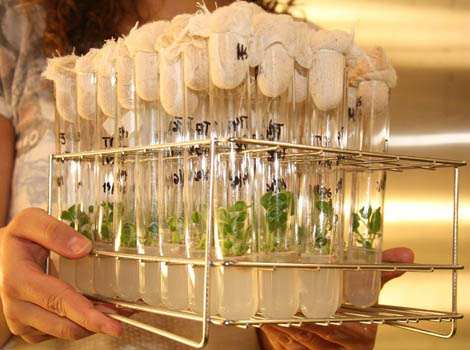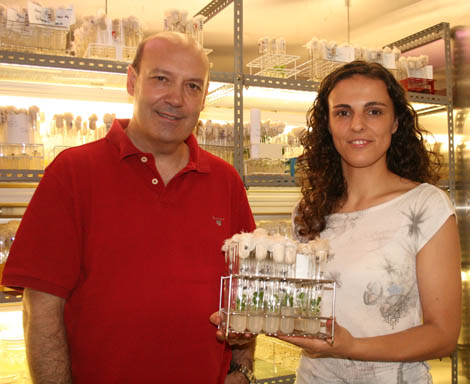 With very interesting nutritional characteristics, due to its high antioxidant index and low caloric content, tamarillo (a fruit originating in South America) is still little known in Portugal, either by the population or by the producers and industry.
With very interesting nutritional characteristics, due to its high antioxidant index and low caloric content, tamarillo (a fruit originating in South America) is still little known in Portugal, either by the population or by the producers and industry.
A team of researchers from the University of Coimbra (UC) is committed to changing this reality and, through cloning techniques, has obtained a set of selected, highly promising plants to affirm the production and consumption of this exotic fruit in our country.
Using plant material from different sources, including Madeira and the Azores (where there are small productions), the researchers developed a cloning method by somatic embryogenesis – which allows for the multiplication of selected trees.

The great advantage of the technique used by researchers to have selected plants is «maintaining the original characteristics with interest and guaranteeing a fast and resistant production, e.g. eg, to pests and bad weather, which in the case of tamarilho is of great importance, since it is a fruit tree very sensitive to frost. Conventional seed propagation methods do not allow to maintain the quality of the mother plant», explains biologist Sandra Correia, who developed her doctoral thesis within the scope of this research.
The results of this investigation, carried out at the UC's Center for Functional Ecology, have great potential for application in gastronomy and industry.
Jorge Canhoto, coordinator of the study, draws a comparison with blueberry: «10 years ago, it was not known in Portugal either, and now, not only is it widely consumed, but exports are also quite significant. We have plants, excellent genotypes and technology to transfer to industry. We are facing an economic niche to be explored».
 On the other hand, conclude the researchers, “it is known that the so-called gourmet cuisine bets on new products and tamarillo, due to its bittersweet character, can make a difference in the menu. It is an excellent fruit to innovate and surprise in sweets, juices, jams and gastronomic dishes, etc».
On the other hand, conclude the researchers, “it is known that the so-called gourmet cuisine bets on new products and tamarillo, due to its bittersweet character, can make a difference in the menu. It is an excellent fruit to innovate and surprise in sweets, juices, jams and gastronomic dishes, etc».
With a pilot trial in progress at Jardim Botânico, the team now intends to micropropagate plants on a large scale within the scope of UC InProplant, an association established between the University of Coimbra and the company InProplant and whose main areas of activity are the agri-fruit sectors and forestry.


















Comments